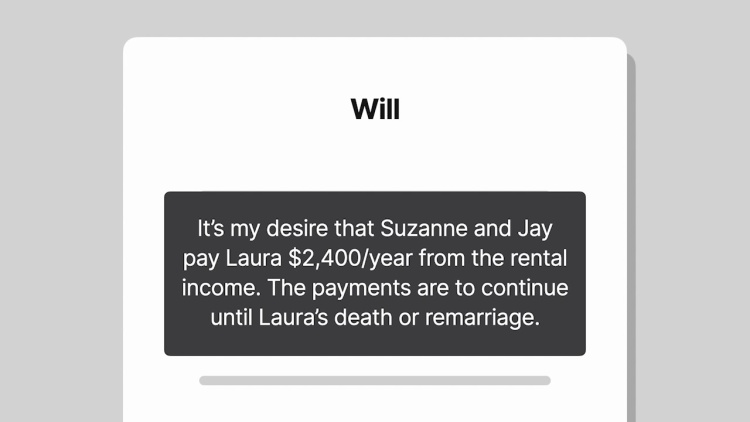Levin v. Fisch
Texas Court of Appeals
404 S.W.2d 889 (1966)
- Written by Mary Pfotenhauer, JD
Facts
Bertha Cohen executed a will, which gave the residue of her estate to her children, Suzanne Cohen Levin and Jay Cohen. The will also stated that it was Bertha’s desire that her children pay $2,400 to Bertha’s sister, Laura Fisch, every year out of the revenues of Bertha’s estate property, for the remainder of Laura’s life or until she married. At the time she executed the will Bertha had a substantial amount of assets, while Laura had very few assets and little income. Bertha’s children had recently inherited a substantial sum from their father. In the years leading up to her death, Bertha made regular monthly payments to Laura, and made other gifts of clothing and money to Laura and Laura’s daughter. After Bertha’s death, Laura (plaintiff) brought suit against Bertha’s children (defendants), who were the executors of Bertha’s will, claiming an interest in Bertha’s estate. The trial court entered summary judgment in favor of Laura. Bertha’s children appealed, arguing that the phrase “it is my desire” in the will did not create a bequest or a mandatory obligation on them to make an annual gift to Laura, and that if Bertha had intended to give Laura a right to the annual revenues from the estate property, she could have directed her children to make such a distribution in their capacity as executors.
Rule of Law
Issue
Holding and Reasoning (Collings, J.)
What to do next…
Here's why 907,000 law students have relied on our case briefs:
- Written by law professors and practitioners, not other law students. 47,100 briefs, keyed to 996 casebooks. Top-notch customer support.
- The right amount of information, includes the facts, issues, rule of law, holding and reasoning, and any concurrences and dissents.
- Access in your classes, works on your mobile and tablet. Massive library of related video lessons and high quality multiple-choice questions.
- Easy to use, uniform format for every case brief. Written in plain English, not in legalese. Our briefs summarize and simplify; they don’t just repeat the court’s language.





